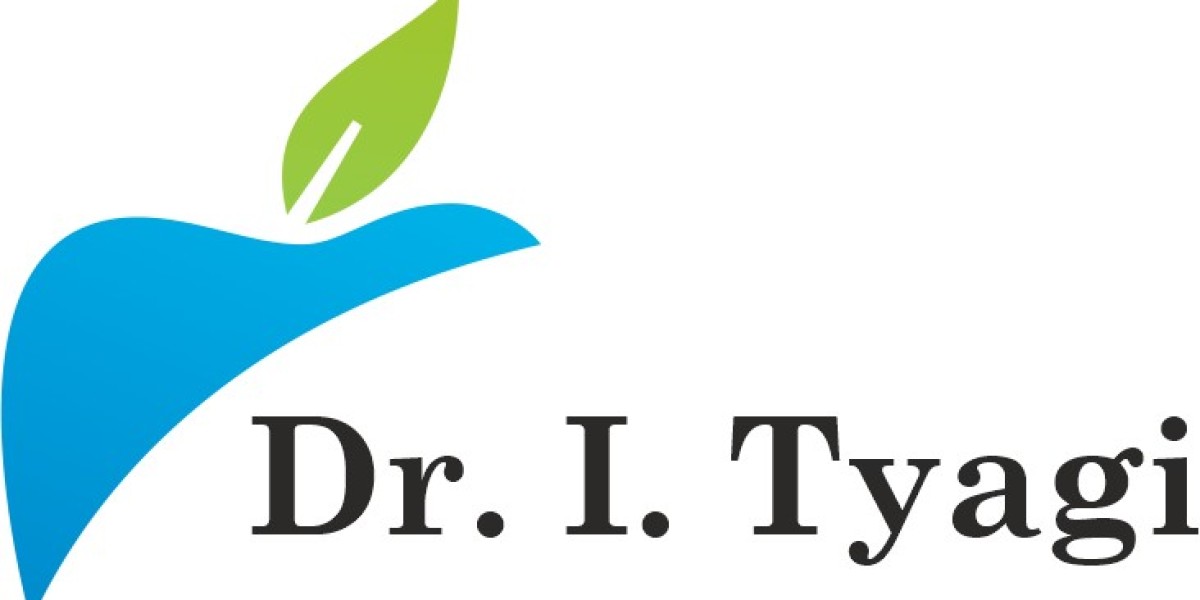Nasal allergies affect more than 400 million people globally, according to the World Health Organization. In India alone, 20-30% of the population suffers from allergic rhinitis – a condition that significantly impairs quality of life. If you're constantly sneezing, feeling congested, or battling watery eyes, you're not alone. ENT specialists like Dr. I. Tyagi, a renowned ENT Surgeon in Lucknow, emphasize that timely diagnosis and treatment can dramatically improve daily functioning. For those also exploring options like Cochlear Implant Lucknow, managing allergies is vital to preventing complications in ENT-related conditions.
Understanding Nasal Allergies
What Are Nasal Allergies?
Nasal allergies, also known as allergic rhinitis, are an immune system overreaction to allergens such as pollen, dust mites, pet dander, and mold. These allergens trigger symptoms like sneezing, nasal congestion, runny nose, and itchy eyes.
Common Triggers to Avoid
Dr. I. Tyagi suggests keeping a watch on the following:
Pollen: Especially during spring and fall seasons
Dust mites: Found in mattresses, pillows, and carpets
Pet dander: Skin flakes and saliva from animals
Mold spores: Especially in damp or humid environments
Symptoms That Shouldn’t Be Ignored
Many people dismiss nasal allergies as a minor issue. However, symptoms like persistent sneezing, nasal congestion, and postnasal drip can lead to fatigue, poor concentration, and even sinus infections.
Diagnosis and When to See an ENT Surgeon
Dr. I. Tyagi, a top ENT Surgeon in Lucknow, recommends visiting a specialist if symptoms last more than two weeks or interfere with daily activities. ENT specialists perform:
Nasal endoscopy
Skin prick tests
Blood tests (IgE) These diagnostic tools help determine the root cause of your allergies and the most effective treatment plan.
Top Treatments Recommended by Dr. I. Tyagi
1. Antihistamines and Decongestants
These over-the-counter medications can offer quick relief. Dr. Tyagi cautions to use them under supervision, as overuse can lead to side effects.
2. Nasal Corticosteroids
Prescribed for moderate to severe symptoms, these sprays reduce inflammation and are among the most effective treatments.
3. Immunotherapy (Allergy Shots)
Over time, allergy shots can desensitize your immune system to allergens, providing long-term relief.
4. Saline Nasal Irrigation
A simple yet effective method to flush out allergens. It’s especially useful during high pollen seasons.
Lifestyle Changes to Reduce Exposure
Keep Your Home Allergen-Free
Use HEPA filters in air purifiers and vacuum cleaners.
Wash bedding in hot water weekly.
Avoid carpets and rugs where allergens can accumulate.
Monitor Local Pollen Levels
Several apps provide real-time pollen data. Plan indoor activities when pollen counts are high.
Bathe Pets Regularly
Reduce pet dander by keeping pets clean and off beds and furniture.
Natural Remedies That Help
Steam Inhalation
Inhaling steam can relieve nasal congestion temporarily and soothe irritated nasal passages.
Herbal Teas
Drinks containing ginger, turmeric, and green tea have anti-inflammatory properties.
Vitamin C Intake
Boost your immune response with citrus fruits or supplements.
Special Advice for Children
Children are particularly vulnerable to nasal allergies. Dr. I. Tyagi advises:
Using allergen-proof covers on pillows
Keeping stuffed toys clean
Avoiding outdoor play during peak pollen times
When Surgery Becomes Necessary
In severe cases where medication and lifestyle changes don’t help, surgical intervention may be required. Procedures like turbinate reduction or sinus surgery can restore normal breathing.
Nasal Allergies and Hearing Health
Chronic allergies can affect your ears too. Fluid buildup from nasal congestion may lead to ear infections or hearing loss. For patients considering Cochlear Implant Lucknow, it’s essential to address nasal health first.
The Role of an ENT Surgeon in Long-Term Care
An ENT Surgeon in Lucknow like Dr. I. Tyagi provides a holistic approach—from diagnosis and medication to surgery and aftercare. Routine follow-ups ensure your condition remains under control.
Future of Allergy Treatment
The field of allergy management is evolving. New therapies like biologics are being tested to treat severe cases of allergic rhinitis with promising results.
Final Thoughts from Dr. I. Tyagi
Getting relief from nasal allergies isn’t just about managing symptoms—it’s about improving your overall quality of life. With accurate diagnosis, consistent treatment, and smart lifestyle changes, lasting relief is achievable.
FAQs
1. Can nasal allergies be cured permanently?
While there’s no permanent cure, consistent treatment and immunotherapy can provide long-term relief.
2. Are nasal allergies genetic?
Yes, they often run in families. If one parent has allergies, the child has a 30-50% chance of developing them.
3. Can I travel during allergy season?
Yes, but take precautions such as carrying medications and checking pollen forecasts.
4. What’s the best time to consult an ENT Surgeon?
When symptoms last more than two weeks or severely impact daily life.
5. Are there side effects to long-term use of nasal sprays?
Some sprays may cause dryness or irritation. Always consult an ENT specialist for long-term use.






